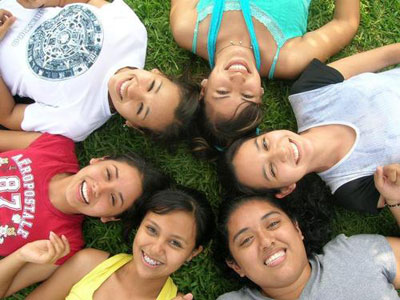All Nonfiction
- Bullying
- Books
- Academic
- Author Interviews
- Celebrity interviews
- College Articles
- College Essays
- Educator of the Year
- Heroes
- Interviews
- Memoir
- Personal Experience
- Sports
- Travel & Culture
All Opinions
- Bullying
- Current Events / Politics
- Discrimination
- Drugs / Alcohol / Smoking
- Entertainment / Celebrities
- Environment
- Love / Relationships
- Movies / Music / TV
- Pop Culture / Trends
- School / College
- Social Issues / Civics
- Spirituality / Religion
- Sports / Hobbies
All Hot Topics
- Bullying
- Community Service
- Environment
- Health
- Letters to the Editor
- Pride & Prejudice
- What Matters
- Back
Summer Guide
- Program Links
- Program Reviews
- Back
College Guide
- College Links
- College Reviews
- College Essays
- College Articles
- Back
Malala: My Inspiration MAG
When I think of the word “hero,” I am reminded of famous people such as Audrey Hepburn the famous actor and humanitarian; Steve Jobs of Apple fame; and Jane Goodall, who has a passion for conservation. However, the most inspiring person to me is Malala Yousafzai.
Malala was born in Pakistan, July 12, 1997. During her teens she worked for BBC, blogging about her life as a young girl in Pakistan. She was interviewed by TV reporters about her opinions on girls’ rights to an education. Speaking out was risky because it caused the Taliban to view her as an enemy of Islam. On October 9, 2012, Malala was riding on a school bus. Suddenly two Taliban men came into the bus and shot her three times in the head and shoulder. Malala’s injury was so severe that particles of bone from her skull damaged the membrane of her brain. She had to be transported to Birmingham, England to have multiple surgeries. She was in a coma for two weeks and later suffered from post-traumatic stress. Her recovery took more than three months.
Even though she was shot, Malala still continued to stand up for equal rights, specifically for girls to have the same educational opportunities as boys. Her courage inspired many women to stand up for their own rights and, in some cases, to take extreme steps to access education. For example, a girl named Rama from Somalia was a war refugee. She was able to be educated for the first time in a refugee camp in Kenya. But the day she went back to Somalia, there was no school for her to attend. She made the hard decision to leave her family and traveled back to the refugee camp so that she could resume her education.
In her speeches, Malala has shared Rama’s story in order to show the world how desperate girls are to have an adequate education. Malala worked hard to develop a non-profit website, malala.org, to educate others and raise money for the “Malala Fund.” The fund pays for girls’ educational programs.
Malala has had to work tirelessly to spread messages of peace and justice throughout the world. In 2014, she visited Nigeria to speak against the mass kidnapping of 276 girls by the terrorist group Boko Haram. She has also met with many heads of organizations and leaders of countries. In April 2017, she addressed Canada’s House of Commons and gave a speech to all the members of parliament, including Prime Minister Trudeau. She talked about education, but she also talked about the dangers of extremism. She said, “If you pick up a gun in the name of Islam and kill an innocent person, you are not a Muslim anymore.” Malala certainly deserves the Nobel Peace Prize she received in 2014.
Like many other teens, I have been personally inspired by Malala to make positive changes in my life. Last year I joined a school club called I Am a Girl. In this club we discuss girls’ thoughts about being leaders and the fact that boys tend to lead and raise their hands more often in school. Girls, especially teen girls, often take a back seat. We also watched the famous “Run Like a Girl” social experiment video. In the video, girls under 10, who were asked to “run like a girl,” pretended to run as fast as they could. However, when teen girls and boys were asked the same, they ran weakly with their arms and legs flapping comically. So even in our Western culture, Malala’s message is sorely needed.
Malala’s courage gives all girls the courage to be ourselves. We are so lucky to have her as a role model.

Similar Articles
JOIN THE DISCUSSION
This article has 1 comment.

47 articles 31 photos 59 comments
Favorite Quote:
BeYOUtiful ✨